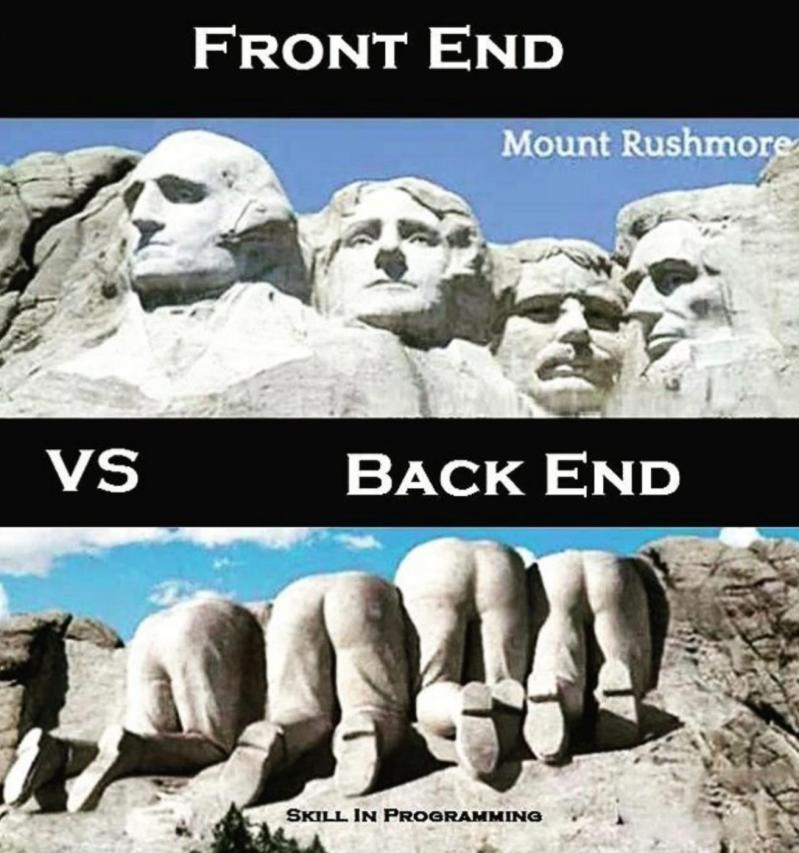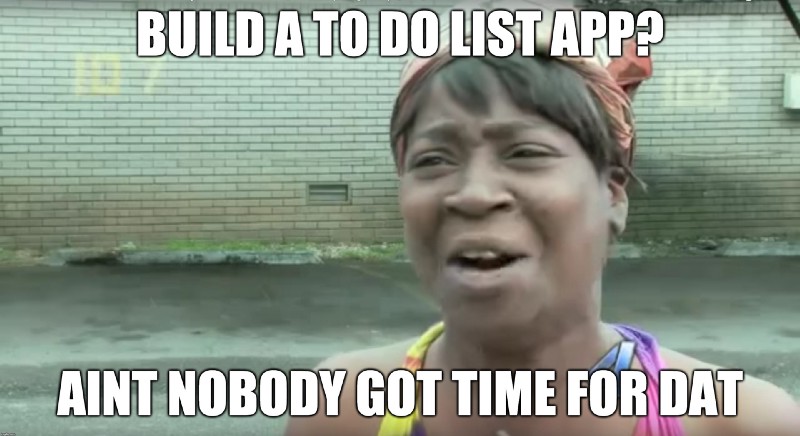Meme Connecting Front End Back End
Something extremely fragile that takes a bunch of work to make.
Meme connecting front end back end. Front end and back end interact in two ways. 1 a simple blog case. Create a back end and front end application in two separate repositories and allow them to talk to each other even on production. Clicking those just causes further requests to the back end.
The front end is the code that is executed on the client side. Create the main project directory. Connecting front end and back end applications objectives. When you type the url of a specific post your browser is making a http request to the back end.
A common application architecture is to host a front end user interfacing application and back end data serving application separately. In your terminal navigate to a directory where you would like to save your project. Read these two points carefully so that you will definitely come to a conclusion on how to connect the front end and back end. I find front end code much harder to keep clean.
Your browser must submit an http request to the backend when you type the url of a particular article. Before we get our hands dirty make sure you have node js running on your machine. The objective here is to give you a practical guide on how to set up and connect the front end client and the back end api. Probably because it was thrown together at the last minute with a lot of the work being done by foreign contractors.
26 points 2 years ago. Back end is easy to keep clean. Both front end and back end can be connected by simple blog instance and single page application. The front and backend make this possible by causing requests to be sent and answering with responses.
The back end is the code that runs on the server that receives requests from the clients and contains the logic to send the appropriate data back to the client. The html js probably defines buttons and links and stuff. Our front end is lipstick on a pig. There is no inherent connection here between the back end and the gui now running in the user s browser.
Before diving deeper we should make sure we re talking about the same things. The only interaction between the two edges is indeed the http flow. The back end can respond to those requests with further html css js or even simpler stuff plain text or whatever. The back end returns a http response containing the html code interpreted by the browser.
This code typically html css and javascript runs in the user s browser and creates the user interface.








:filters:format(jpeg)/f/51376/5303x1881/3de28deb84/headless-cms-vs-monolithic-cms.jpg)















































/cdn.vox-cdn.com/uploads/chorus_image/image/66741310/3zlqxf_copy.0.jpg)




































